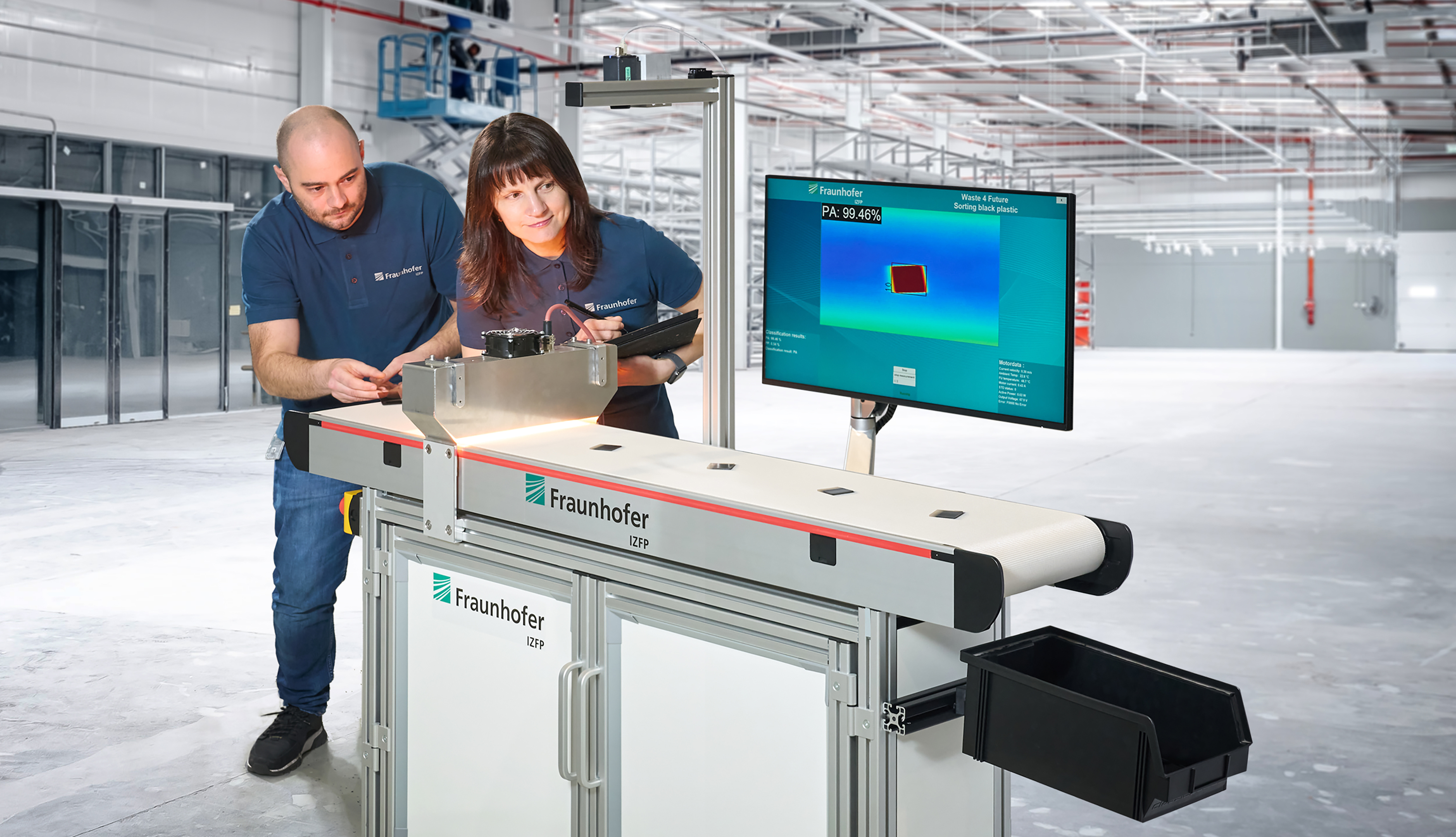In Germany, the recycling rate for plastic was recently around 44% – a far cry from true recycling. In particular, materials that are difficult to sort, such as black plastics, have a negative impact on this rate. These occur particularly in the automotive industry and in electrical appliances. In view of increasing demands for resource efficiency, legal requirements and growing social awareness of sustainability, it is therefore all the more important to develop new technologies and processes to keep materials in the cycle.
Black plastics have long posed a particular challenge in the recycling process. The reason lies in their color: conventional optical sorting systems, such as those used in recycling plants, mainly work with near-infrared technology (NIR). However, this can hardly detect black materials because the soot they contain absorbs the light and does not produce any usable reflections. As a result, black plastics are often not correctly sorted, but ejected and thermally incinerated – which results in the loss of valuable raw materials and puts a strain on the CO2 budget.
Only innovative solutions will make it possible to reliably identify, sort and recycle black plastics in the future – a crucial step towards a functioning circular economy.
Our W4F Demonstrator uses active thermography to analyze black plastic materials. The process begins with targeted heating of the sample material on the surface. This is followed by a thermographic analysis of the moving material to gain deeper insights into the material properties. This analysis is crucial for identifying material defects and differences.
The innovative approach pursued by the Fraunhofer IZFP enables a classification of black plastics, which can be efficiently detected and sorted based on the thermographic analysis. This can not only contribute to an improvement of existing recycling processes, but also enable an internal cycle of a company's own materials in industry. Furthermore, this technology is also capable of conventional defect detection to ensure the quality and integrity of materials. The plastic demonstrator thus represents a valuable solution for enabling efficient sorting and effective recycling.
Would you like to find out more? Here you will find publications relating to the W4F Demonstrator
- K. Schmitz, N. Shpakova, A. Keller, U. Netzelmann. Classification of black plastic using active thermography. 10th Sensor-Based Sorting & Control (SBSC 2024).
- K. Schmitz, N. Shpakova, A. Keller, U. Netzelmann. Materialidentifikation von schwarzen Kunststoffen mittels aktiver Thermographie. Zerstörungsfreie Materialprüfung. DGZfP-Jahrestagung 2024. (German)
 Fraunhofer Institute for Nondestructive Testing IZFP
Fraunhofer Institute for Nondestructive Testing IZFP 